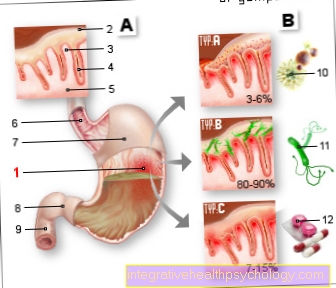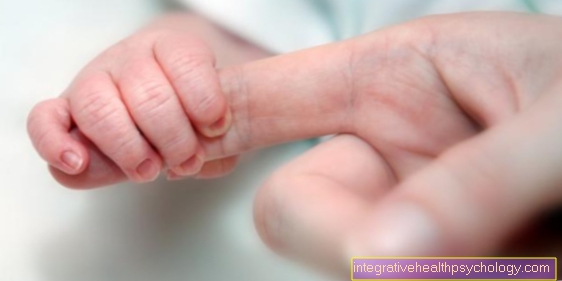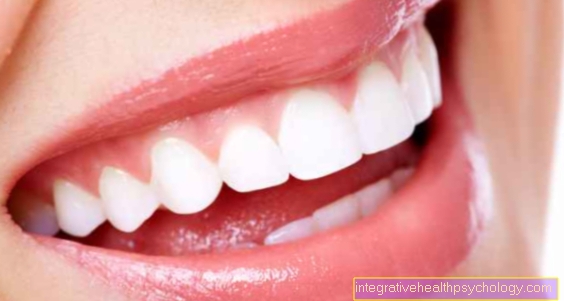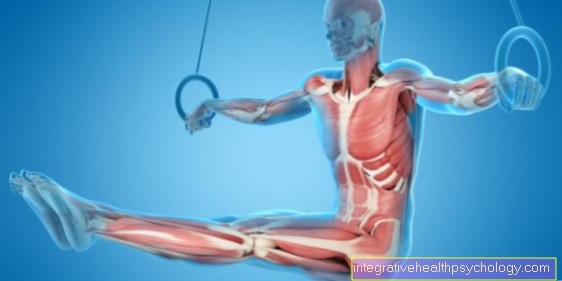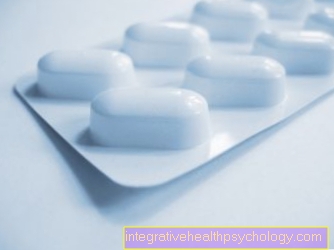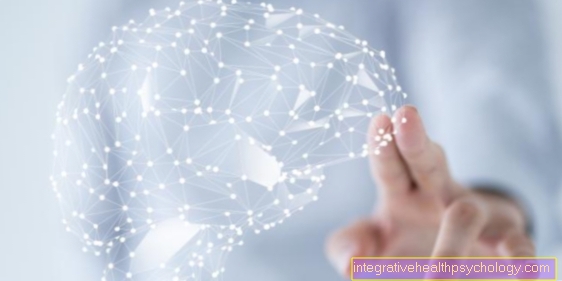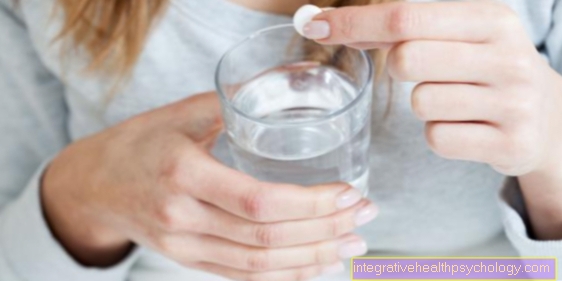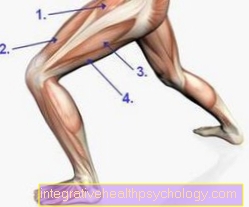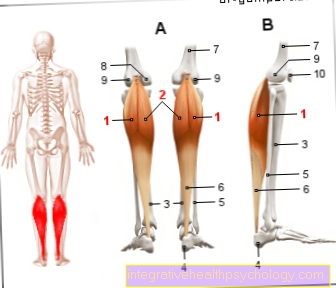Potato and Egg Diet
introduction
Reinhold Kluthe is a German internist and nephrologist who does great service in modern day Nutritional therapy and nutritional science. In particular, he has researched how patients with renal failure or Hepatic insufficiency can be nourished optimally while protecting the damaged organs. For example, a high protein diet can put stress on the kidneys.

Proteins contain amino acids and are vital for humans. While some amino acids can be produced by the body itself, many other amino acids must be obtained from food. However, people with renal insufficiency can only fulfill a limited metabolic function (see: Function of the kidney), with the result that protein consumption can further damage the kidneys and lead to damage in the body. Therefore, a diet must be sought that is gentle on the kidneys - "nephroprotective" - and at the same time supplies the body with all the important nutrients.
General
The nutritional recommendations according to Kluthe also focus on other important aspects of nutrition such as fats, vitamins and much more. aligned. However, this is supposed to be more about protein intake.
Many patients have to eat a low-protein diet in order not to damage their kidneys. However, this can lead to the body's own proteins being broken down for requirements. In order to prevent this, protein intake as concentrated as possible with a high biological value is necessary. This is achieved with a potato-egg mixture or a potato-wheat mixture. The protein then meets the body's needs, but does not put additional strain on the kidneys. It should be taken with a meal.
Find out more about: Potato diet
The need for protein is calculated by the doctor and an exact amount for the intake is determined. This amount of potato and egg mixture is then skewed into one meal every day. In addition, a good supply of vitamins, fats, calcium and iron must of course also be ensured.
Recipe / daily plan
with 25 - 30 g total protein daily
Low in sodium, not liquid balanced, no potassium restriction
1. Breakfast
- 2 cups of coffee with 10 g sugar and 10 g condensed milk
- 40 g rolls
- 25 g low-protein bread (health food store)
- 20 g butter
- 30 g strawberry jam
- 15 g honey
2. Breakfast:
- 100 ml apple juice
- 10 g rusks
- 5 g butter or margarine
Having lunch:
- Fried potatoes with egg, endive salad, fruit ice cream
- 300 g potatoes
- 10 g bacon
- 10 g of oil
- 20g onions
- 30 g egg
- Spices
- 50 g endive salad
- 10 g onions
- 5 g oil, spices
- 60 g fruit ice cream
Snack in between
- 2 cups of coffee, 10 g of sugar, 10 g of condensed milk
- 1 slice of crisp bread, 10 g butter or margarine
- 15 g jam
Dinner:
- 2 cups of tea, 10 g of sugar
- Vegetable soup with noodles
20 g each of leeks, carrots and celery
10 g of soup noodles, spices
10 g of vegetable oil - 50 g low-protein bread
15 g butter or margarine
30 g processed cheese (60% fat in dry matter)
50 g tomato
Late meal:
- 150 g apple, fresh
If you have potassium restriction, foods rich in potassium should be omitted and certain foods should be watered. Adhere to the prescribed drinking quantity when using the liquid balance. - Nutritional values
30 g protein
80 g fat
270 g of carbohydrates
Energy 1970 kcal
Sodium 987mg (no table salt used for cooking)
Potassium 2930 mg
Calcium 380 mg,
Phosphorus 742 mg
What are the dangers of this diet?
The potato and egg diet harbors the risk of nutrient deficiency if implemented for a long time. If the body lacks vitamins, minerals, nutrients and trace elements over a long period of time, symptoms of deficiency can occur and, in the case of iron deficiency, even anemia. The fat intake is usually too low with this form of diet, since the dishes should be prepared as low in fat as possible.
Mono diets such as the potato and egg diet often cause food cravings and, if they suddenly fall into old patterns, the dreaded yo-yo effect.
Side effects of the potato and egg diet
You can lose weight very quickly with the potato and egg diet. The large quantities of potassium in potatoes have a strong dehydrating effect, so that a lot of water is flushed out, especially at the beginning of the diet. If the diet is implemented over a longer period of time, there is a risk of deficiency symptoms due to insufficient intake of vitamins, minerals and trace elements. These can manifest themselves as poor concentration, headaches or a general feeling of weakness.
How can I avoid the yo-yo effect with this diet?
If you want to avoid the yo-yo effect in the potato and egg diet, it is advisable to see the diet as the start of a new, healthy diet. You should make a slow transition to a permanently healthy, balanced lifestyle by gradually increasing the different side dishes and replacing them with different products and slowly reducing the potato content. Regular exercise helps to keep the desired weight permanently during and after the diet.
Read more about this under: Jojo effect
Potato and egg diet for renal insufficiency
If you have kidney failure, it is important to limit the protein from the diet. Nevertheless, you should consume at least 0.5 grams of protein per kilogram of body weight every day so that the muscles do not break down. It is advisable to bring biologically high-quality protein on the menu that contains sufficient essential amino acids for the body. High-quality protein mixtures are made from combinations of potatoes and eggs, beans and eggs, milk and wheat, eggs and wheat and legumes with wheat or egg.
Accordingly, the potato and egg diet is a great way to eat protein every day without harming the kidneys. The individual protein requirement should be taken into account and the diet can be made more moderate.
Read more about this under: Nutrition in case of renal insufficiency
What alternative diets are there to the potato and egg diet?
If you want to lose weight in a short time and not forego carbohydrates, you can try a potato diet with quark, vegetables, etc. instead of the potato and egg diet, or the similarly structured rice diet, which is also filling and, depending on the type of diet, very strict can be designed to be moderate.
In order to lose weight in the long term, low-carb diets are also popular, in which the carbohydrates in the main meals are reduced. Examples are the Atkins diet, the Logi method or the Glyx diet. All of these diets can be carried out over a longer period of time and can be combined very well with exercise in order to maximize weight loss.
Medical evaluation of the diet by
The potato and egg diet is a mono diet that is more filling than many other radical mono diets. The pounds drop particularly heavily in the first few days because a lot of water is flushed out. The low calorie content of the food means that the fat also melts. It is important to consume enough protein from eggs and potatoes so that the body's own muscles are not broken down. If the potato and egg diet is implemented radically, there is a risk of deficiency symptoms and anemia. In these cases, the family doctor should be informed.
The combination of potatoes and eggs provides a high biological value, which means that the protein can be easily absorbed in the intestine and provides the body with protein. If you ingest too much protein from meat, some of it is excreted through the kidneys. That is why the kidney-friendly potato and egg diet is of medical importance in the case of renal and hepatic insufficiency.





